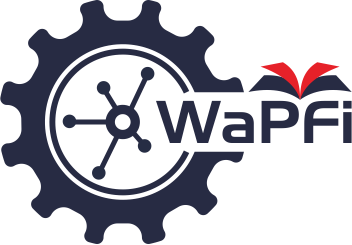A bibliometric analysis of problem-based learning and physics education research (2013–2023)
Abstract
The development of learning models of education is increasing. Teachers can use various methods and learning models to convey learning material to achieve learning goals at school, one of which is the Problem-Based Learning model. This research aims to discover the research trends of Problem-Based Learning and physics education in the last ten years, which have continued to increase. This research is quantitative research conducted by analyzing the bibliometric "Problem-Based Learning and physics education" model taken from annual publications, countries, institutions, authors, journals, references, and keywords in the field which are processed visually using R software The results of this study were 121 Scopus database metadata documents used and analyzed with Biblioshiny. In general, China has the most publications, Fi Y is a figure who often researches PBL and physics education, and PBL is a learning model that focuses on problem-solving, critical thinking, and student independence. This research provides readers with an understanding of PBL and physics education and serves as a reference for further research
Downloads
References
Al-Azri, H., & Ratnapalan, S. (2014). Problem-based learning in continuing medical education: review of randomized controlled trials. Canadian family physician, 60(2), 157-165.
Arends, D., & Kilcher, A. (2010). Teaching for student learning: Becoming an accomplished teacher. Routledge.
Aria, M. (2017). Bibliometrix: an R-tool for comprehensive science mapping analysis. Journal Informetric. 11(1), 959–975.
Azer, S. A. (2017). Topâ€cited articles in problemâ€based learning: A bibliometric analysis and quality of evidence assessment. Journal of Dental Education, 81(4), 458-478.
BNSP. (2006). Panduan penyusunan kurikulum tingkat satuan pendidikan jenjang pendidikan dasar dan menengah. Kementrian Pendidikan dan Kebudayaan
Chen, C. (2004). Searching for intellectual turning points: progressive knowledge domain visualization. In Proceedings Science of Aging Knowledge Environment U S A 101, 5303–5310.
Compton, R. M., Owilli, A. O., Norlin, E. E., & Murdoch, N. L. H. (2020). Does problem-based learning in nursing education empower learning?. Nurse Education in Practice, 44, 102752.
Dolmans, D. H., De Grave, W., Wolfhagen, I. H., & Van Der Vleuten, C. P. (2005). Problemâ€based learning: Future challenges for educational practice and research. Medical education, 39(7), 732-741.
Domingo-Osle, M., La Rosa-Salas, V., Ambrosio, L., Elizondo-Rodriguez, N., & Garcia-Vivar, C. (2021). Educational methods used in cancer training for health sciences students: An integrative review. Nurse Education Today, 97, 104704.
Triwahyuningtyas, D. A. S. (2020). E-modul pembelajaran berbasis masalah pesawat menggunakan Kvisoft Flipbook Pembuat untuk siswa sekolah dasar. Jurnal Prima Edukasia, 8 (2), 2020, 199-208.
Masrinah, E. N., Aripin, I., & Gaffar, A. A. (2019, October). Problem based learning (PBL) untuk meningkatkan keterampilan berpikir kritis. In Prosiding Seminar Nasional Pendidikan (Vol. 1, pp. 924-932)..
Zhang, F., Wang, H., Bai, Y., & Zhang, H. (2022). A bibliometric analysis of the landscape of problem-based learning research (1981–2021). Frontiers in psychology, 13, 828390.
Fathurrohman, M. (2015). Model-model pembelajaran. Ar-ruzz media.
Istiyono, E., Dwandaru, W. S. B., Setiawan, R., & Megawati, I. (2020). Developing of Computerized Adaptive Testing to Measure Physics Higher Order Thinking Skills of Senior High School Students and Its Feasibility of Use. European Journal of Educational Research, 9(1), 91-101.
Kemendikbud. (2014). Lampiran III, peraturan menteri pendidikan dan kebudayaan republik indonesia, nomor 57 tahun 2014 tentang kurikulum 2013 sekolah dasar/madrasah ibtidaiyah.
Lidinillah, D. A. M. (2008). Strategi pembelajaran pemecahan masalah di sekolah dasar. Jurnal Pendidikan Dasar, 10(1-5), 1-10.
Liu, Y., Li, X., Ma, L., & Wang, Y. (2022). Mapping theme trends and knowledge structures of dignity in nursing: A quantitative and coâ€word biclustering analysis. Journal of Advanced Nursing, 78(7), 1980-1989.
Maknun, J. (2020). Implementation of Guided Inquiry Learning Model to Improve Understanding Physics Concepts and Critical Thinking Skill of Vocational High School Students. International Education Studies, 13(6), 117-130.
Nugraha, W. S. (2018). Peningkatan kemampuan berpikir kritis dan penguasaan konsep IPA siswa SD dengan menggunakan model problem based learning. Jurnal Pendidikan Dasar, 10(2), 115-127.
Nuryantini, A. Y., Fajriah, H. N., Zakwandi, R., & Nuryadin, B. W. (2020, June). Simple harmonic motion experiments with the accelerometer sensor on a smartphone: Improving the problem solving-ability. In Journal of Physics: Conference Series 1572(1) , p. 012058)
Lopez-Jimenez, P. A., Gil-Duque, G. M., & Garces-Gómez, Y. A. (2021). Real problem solving as a teaching strategy for physics education: Case study. Jurnal Pendidikan IPA Indonesia, 10(1), 15-23.
Purnomo, H. S. (2019). Implementasi pembelajaran berbasis masalah dan group investigation (PBL go-in) untuk meningkatkan kompetensi siswa SMK. Jurnal Studi Pendidikan Kejuruan,2(1), 47-53.
Qudwatullathifah, R. S. (2019). Kemampuan pemecahan masalah siswa berdasarkan penguasaan konsep pecahan dalam model PBL. Jurnal Pendidikan Dasar,8(8), 207–214.
Ramadhan, S., Mardapi, D., Prasetyo, Z. K., & Utomo, H. B. (2019). The development of an instrument to measure the higher order thinking skill in physics. European Journal of Educational Research, 8(3), 743-751.
Ramadhani, R., Syamsul, H., & Rofiqul, U. (2019). Problem-based learning, its usability and critical view as educational learning tools. Journal of Gifted Education and Creativity, 6(3), 193-208.
Tupan, T. (2022). Analisis bibliometrik perkembangan potensi energi baru dan terbarukan di Indonesia menggunakan R Biblioshiny dan VosViewer. Journal of Library and Information Science, 2(2), 71-81.
Jufrida, J., Kurniawan, W., Astalini, A., Darmaji, D., Kurniawan, D. A., & Maya, W. A. (2019). Students' Attitude and Motivation in Mathematical Physics. International Journal of Evaluation and Research in Education, 8(3), 401-408.
van Der Vleuten, C. P., & Schuwirth, L. W. (2019). Assessment in the context of problem-based learning. Advances in Health Sciences Education, 24(5), 903-914.
Walker, A. &. (2009). A problem based learning meta analysis: Differences across problem types implementation types, disciplines,and assessment levels. Interdisciplinary Journal of Problem-based Learning, 3(1), 6-10.
Hu, X., Zhang, H., Song, Y., Wu, C., Yang, Q., Shi, Z., ... & Chen, W. (2019). Implementation of flipped classroom combined with problem-based learning: an approach to promote learning about hyperthyroidism in the endocrinology internship. BMC Medical Education, 19, 1-8.






